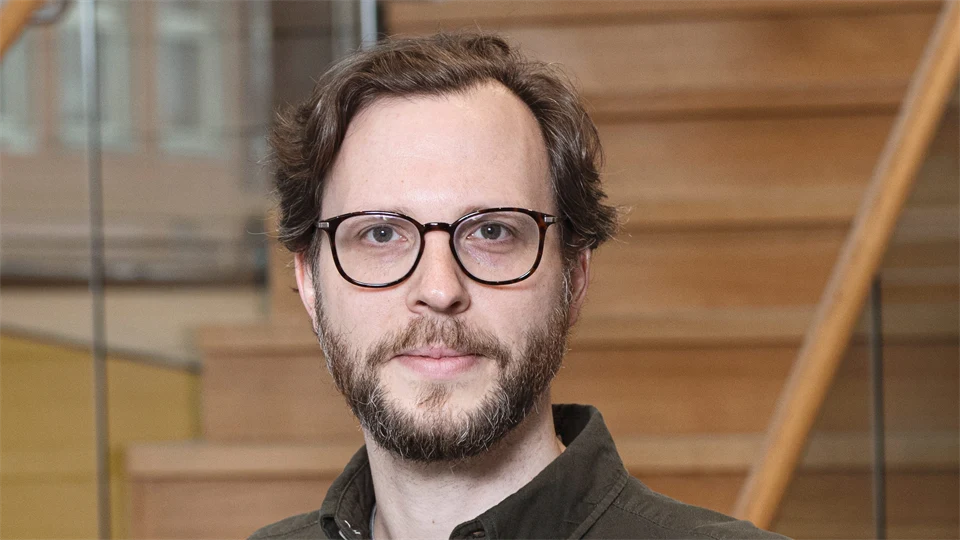–You can make a difference here quite quickly
Tell us, where do you come from?
– I come from – by German standards – a small town named Leer. Back then, the town had about 35,000 inhabitants and is situated in the north-west part of Germany, just a stone's throw from the Netherlands and the coast. My career path has been fairly simple; I studied in Germany, but then got my doctorate in Sweden and stayed on here afterwards.
How did you end up here?
– Just like many other things, it was by chance. I was studying electrical engineering in Germany in a city called Wilhelmshaven. I have always been interested in studying for a term abroad, and Sweden was one of the countries that interested me. At some point, the university was visited by a delegation from Mid Sweden University. The plan was to form an exchange agreement between the two institutions. I got to listen to a presentation about Sweden and Mid Sweden University during one of my courses and thought it sounded exciting. To cut a long story short, I travelled to Sundsvall shortly afterwards for one term, where I got an internship at one of STC's research groups (Sensible Things that Communicate). It suited me so well that I came back to do my degree project, started my doctorate, and later became an employee.
What do you like most about Mid Sweden University?
– That is not an easy question, and it is probably a combination of different things. If I personally had to choose one thing, it would probably have a lot to do with the fact that you can influence your own work situation and development. Although I do not have much experience from other higher education institutions, I think that one of Mid Sweden University's strengths is its adaptability. However, I have experienced a change over time, and bureaucracy and administration are on the rise. There are both good and bad things, I guess.
How do you balance work and time off?
– The first thing I can say here is that the need for finding a balance is perhaps not as great in my position. I have the privilege of working with something that I truly enjoy. It may be that this results in me not always separating work and spare time. I do, however, sit in front of the computer a lot at work. I try to balance that by being a little more active when I am not working; which could involve skiing in the winter, sport climbing in the summer, or just going for a walk.
Tell us about a project that you feel especially proud of.
– One project that I feel has been very successful is the SMART project. It was large and very extensive, but what I think we have succeeded in is being able to combine the advancement of knowledge with the creation of involvement in the region. It seems that the project has been an eye opener for several organisations that we worked with, perhaps to the greatest extent those that are not so used to working with new technology.
Why do you think people should apply to work at Mid Sweden University?
– Working at a university involves a great deal of freedom, and means being able to work with the advancement and dissemination of knowledge in areas that you personally feel are interesting and important. You can also quite quickly see the effects of your work, especially in educational settings. One advantage more specific to Mid Sweden University is the fact that it feels that you can quite quickly make a difference here. There is relatively little prestige, and input seems to be welcome from everyone. I suppose this has partly to do with the size and the fact that it is easier to come in contact with people outside of the subject or institutional level.
What do you like most about living and working here?
– I live and work in Sundsvall, and I think that it is just right for me. The city has all the advantages of a 'city' but is not too big. It also feels like everything is quite close by. There are forests and mountains, lakes and the sea, and access to the activities that all of these make possible. At the same time, it is not too far to get to Stockholm, and from there, on to wherever you want to go.
How are you able to affect society/developments/the environment through your work?
– As a researcher and instructor, you really have to always keep in mind how you can have an impact. As an engineer, I think it is quite easy to see that connection. Knowledge development, which I am working with, is seldom purely curious in nature; it should usually result in practical use and improvements for society. This is usually done by collaborating with external stakeholders who have specific challenges or needs for skills development. At the same time, an even greater impact can be had through teaching, where it is not only me who is able to make a difference but also all the alumni. It is easy to forget what a considerable responsibility, and what great opportunities, you have as an instructor to influence the way that knowledge is used in the future.
